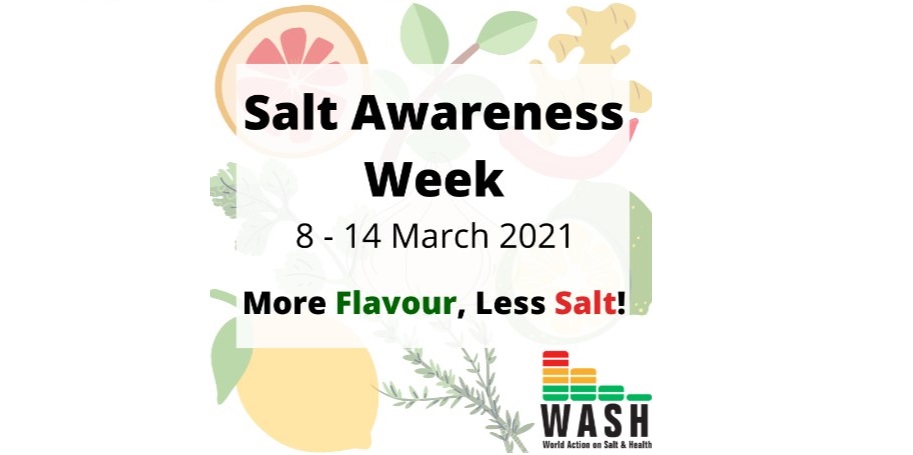A reflection on nutrition policies in the UK

July 2021 marked the first anniversary of the United Kingdom’s Tackling Obesity Strategy (government plan) and England’s National Food Strategy (independent report to the government) reinforcing the importance of innovative food policies for creating healthier food environments. Ioana Vlad from the World Cancer Research Fund International discussed the potential positive impact of two proposed strategies: […]
The World Health Organization publishes new guidelines on hypertension

On the 25th of August, WHO published new hypertension guidelines. Titled “WHO Guideline for the pharmacological treatment of hypertension in adults”, the guidelines provide new recommendations to help countries improve management of hypertension, including when to start medications, what types of medications to use (and in what combinations), target blood pressure levels and how often […]
Our updated WHOCC Salt Reduction website!

We are pleased to let you all know that we have updated our WHOCC on Population Salt Reduction website. This website aims to be a hub for information on salt reduction, useful to researchers, policy makers, food industry and anyone interested in how they can reduce their salt intake. It also houses salt reduction resources, […]
Barriers, Enablers, and Perceptions on Dietary Salt Reduction in the Out-of-Home Sectors: A Scoping Review

Published in the International Journal of Environmental Research and Public Health in July 2021, Michael et al reviewed the perceptions and challenges that influence dietary salt reduction in out-of-home sectors. Drawing from different databases for published research articles up until December 2020, the review found that there were several perceived barriers that impeded salt reduction […]
Salt reduction “controversy”

There is a well-established causal relationship between salt intake and increasing blood pressure. Public health messaging is therefore focused on reducing salt intake to reduce the risk of cardiovascular disease. However, over recent years several cohort studies have claimed that both high and low salt intake are associated with cardiovascular disease risk (i.e. a “J-shaped” relationship). In two complementary editorials, prominent salt reduction researchers and epidemiologists address […]
New research proves salt substitution lowers the risk of stroke and heart attack

On the 29th of August a study entitled “Effect of Salt Substitution on Cardiovascular Events and Death” was published by The New England Journal of Medicine. The study, by Neal et al from the George Institute for Global Health, found that use of reduced sodium and increased potassium salt substitutes significantly reduces rates of stroke, heart attack and death. The study was […]
Limited potential impact of Australia’s reformulation targets on sodium purchases

Research by Coyle et al (2020) from the George Institute for Global Health has sparked media attention as it found very limited potential impact on reducing sodium intake of the Australian population from the voluntary sodium reformulation programme, the Healthy Food Partnership, with just 50mg daily reduction per person if there was 100% compliance with […]
World Salt Awareness Week 8-14 March 2021 – Spread the message: More Flavour, Less Salt!

World Salt Awareness Week (WSAW) is taking place between the 8 – 14th of March and this year the theme is “More Flavour, Less Salt!” Led by World Action on Salt, Sugar and Health, this year’s theme aims to reflect the fact that many people are eating and cooking more at home given COVID-19 related […]
#GeorgeTalks on “Salt wars: using policy and the law to reduce salt intake”

The George Institute for Global Health invites you to a #GeorgeTalks on “Salt wars: using policy and the law to reduce salt intake” on Wednesday 10 March 2021 at 12pm (AEDT) to mark ‘World Salt Awareness Week’. For this #GeorgeTalks event, we will be joined by Dr. Michael F. Jacobson, Senior Scientist and former […]
Kraft Heinz on Reducing Salt in their Processed Food Products

Kraft Heinz has been incrementally reducing salt and sugar in their processed food products, to minimise the taste difference perceived by consumers in lower salt/sugar products, but the company faces pressure from nutritionists to move more quickly. In a recent report, the company promised to achieve 85% compliance with Kraft Heinz Global Nutrition Targets by […]